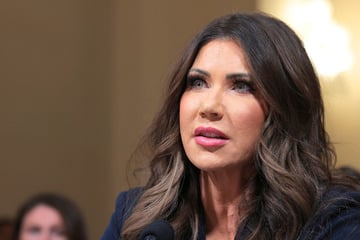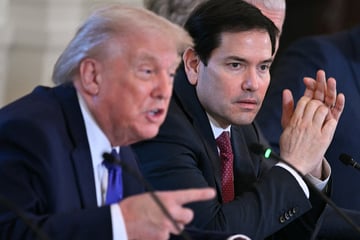Reparations advocates demand action during Bloody Sunday commemorations in Selma
Selma, Alabama - Black activists marked the 58th anniversary of the Selma-to-Montgomery marches that defined the US Civil Rights Era with renewed calls for reparative justice.
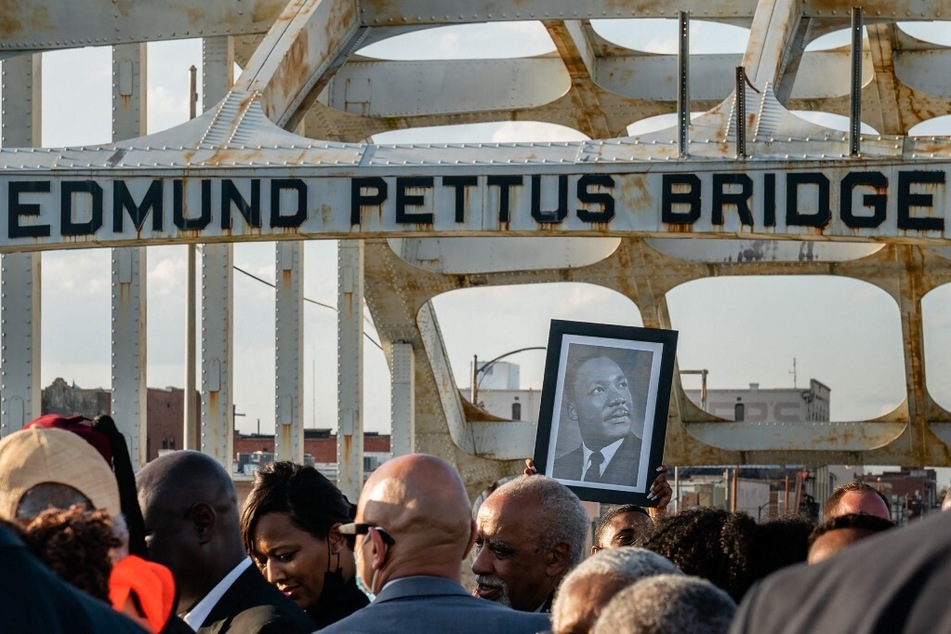
On March 7, 1965, the late Civil Rights activist John Lewis defied state troopers and sheriff's deputies by leading a group of 600 protesters across Selma's Edmund Pettus Bridge to demand voting rights and protections.
Though the Civil Rights Act of 1964 had already been enacted, many Black Americans in the South were effectively barred from voting as they faced intimidation and outright violence for attempting to register.
The marchers were en route to the state capital of Montgomery when they were attacked by white law enforcement officers brandishing whips, clubs, and tear gas. Lewis was one of the activists hospitalized on that day, known as "Bloody Sunday."
In the aftermath of the brutal crackdown, Congress passed the Voting Rights Act of 1965 to ensure further protections for Black voters. Today, those provisions have increasingly come under threat from state legislatures around the country all the way to the US Supreme Court – with little federal action to stop the rollback.
During the Bloody Sunday 58th anniversary commemorations, activists and elected officials from across the nation converged on Selma to honor the legacy of Black resilience and resistance during more than 400 years of government-sanctioned discrimination and abuse.
This year, their demands centered not only voting rights guarantees but also on the need for reparations to address the ongoing harms of enslavement, Jim Crow, and present-day policies that continue to hold Black Americans back.
Selma's legacy lives as residents today suffer
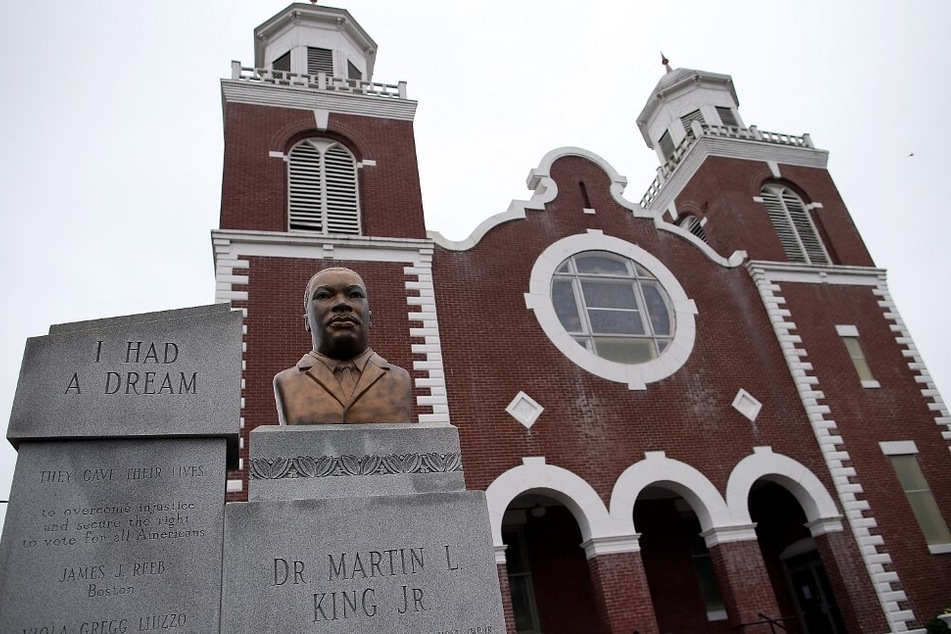
On Saturday, activists gathered in front of the historic Brown Chapel AME Church, where the 1965 march began, to call for reparations in Selma and at the federal level.
"Look around you, Selma is suffering," said Selma Jubilee Board member Rev. Mark Thompson. "None of us is absolved from the sin of coming here every year to commemorate and then leaving and not being concerned about the wellbeing of Selma 365 days a year."
While serving as a beacon of Black empowerment across the nation, Selma itself has been allowed to fall into disrepair due to a series of policy choices at the federal, state, and local levels, advocates pointed out.
"The center of wealth in this state was actually in this community. This is not a place that has always looked the way that you see it looking right now," said former Selma resident and Black Voters Matter co-founder Cliff Albright. "There are several ways that this state and this country have punished this city and Black folks in this city for having the audacity to stand up for our human rights."
Selma's population is 84.2% Black, with almost a third of its residents living below the poverty line, according to the US Census. The situation has only grown worse as the city struggles to recover from the devastating tornadoes that tore through the community in January.
"This is the cradle of democracy, the birthplace of democracy, in fact, the Calvary of democracy," Thompson insisted. "Anywhere else you would go, this would be a sterling, shining city on a hill with tourism and business – thriving Black business. We need to make Selma that way."
Activists demand reparations in Selma and beyond
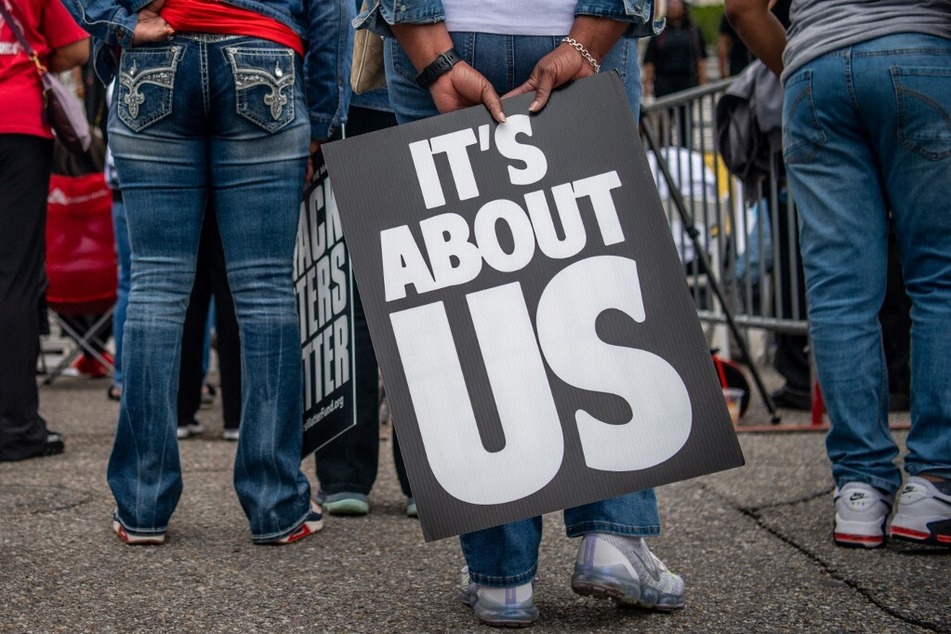
Racial justice advocates described reparations as necessary to carry out the vision of leaders like John Lewis and Martin Luther King Jr., whose courage against oppression made Selma a turning point in the Civil Rights movement.
"You can't go across the Edmund Pettus Bridge without knowing the terrorism that was done to us, and we were never compensated," said Nkechi Taifa, founder and director of the Reparation Education Project.
"No amount of monetary compensation can ever compensate for what we went through as a people – no amount. That's why reparations is what we call a negotiated settlement," Taifa continued, noting that Black Americans should be the ones dictating the terms of their redress.
The calls for reparations in Selma come amid the recent rise in task forces being formed in municipalities, counties, and states around the country. Prominent activists in the movement say there is no reason Selma can't be the next city to see its own reparations commission.
"Reparations holds us accountable for telling the truth, that Selma looks like Selma today because it was designed to look this way," said Ryan Haygood, president and CEO of the New Jersey Institute for Social Justice.
The next step, Haygood added, involves looking toward the future to envision a better reality – one in which Black people are not only able to exercise their equal right to vote and walk down the street without getting shot by police, but are also able to thrive.
For him, conversations around reparations ultimately revolve around the central question: "What does it look like for us to win?"
Reparations advocates call for federal action
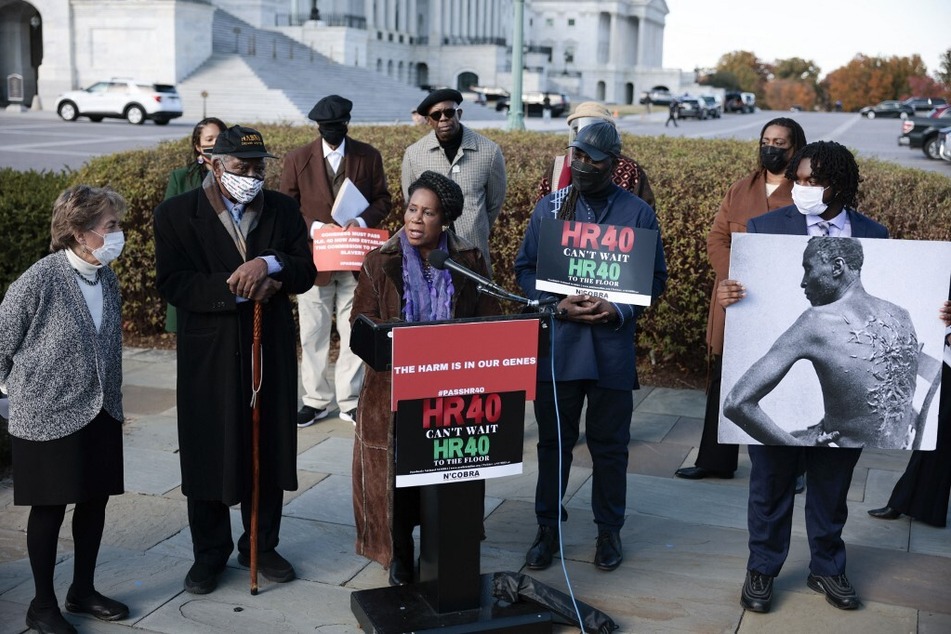
While local efforts are critical to advancing the cause of justice, advocates were clear that federal action is also necessary to achieve true transformational change for Black Americans in Selma and around the country.
That's why they reiterated demands for the enactment of a federal commission to study and develop reparations proposals as outlined in the House bill HR 40 and its Senate companion S 40. The legislation, reintroduced in January, would establish a 13-member body tasked with creating a strategy to address past and present racial discrimination.
Congresswoman Sheila Jackson Lee, the bill's primary sponsor in the House, told the crowd in Selma, "Reparations and the commission can open the eyes of why and where, what is the historical record, and why are we in the same place in 2023."
As Joe Biden prepares to travel to Selma on Sunday, reparationists are urging the president to finally heed their calls for an executive order, a demand Jackson Lee echoed on Saturday.
"I believe an executive order is an appropriate vehicle to go forward, to be able to begin the assessment – the analysis – so that we might find out what we can do right here in Selma," she said.
Reparations movement builds on Selma's powerful legacy
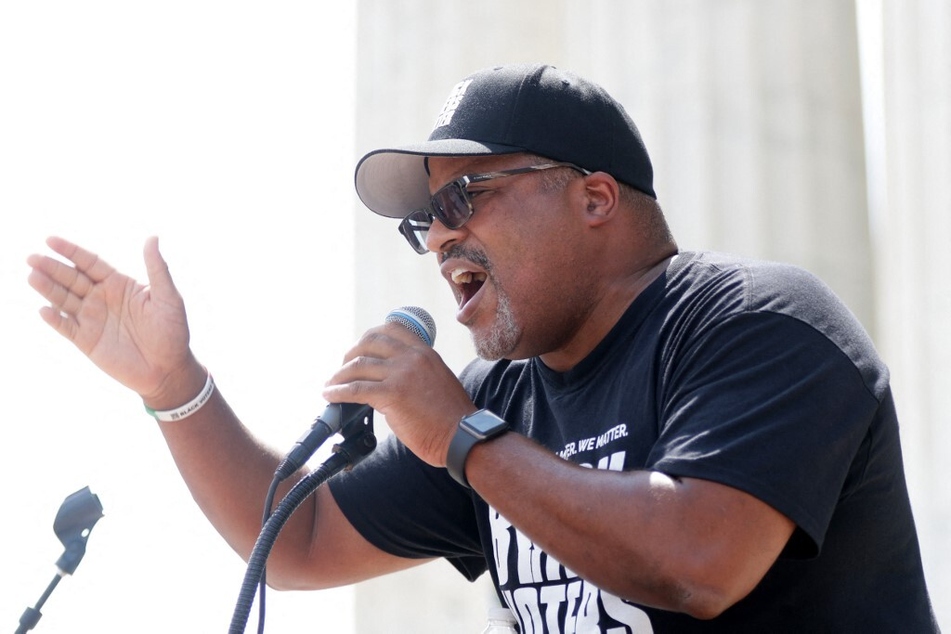
Just as Jackson Lee rooted the urgent push for executive action in the legacy of Martin Luther King, Albright noted that reparations is intrinsically tied to the ongoing fight for voting rights, which saw Selma as its ground zero.
Albright emphasized the importance of voting up and down the ballot for candidates who will deliver on reparations to keep building momentum behind the movement, but that's not the end of the story.
"Voting matters, but as we always say, voting is not the only way to build power. That movement in the streets is an example of building power," the Black Voters Matter executive director said. "How we got the right to vote? Selma didn't vote for the Voting Rights Act. We organized for the Voting Rights Act!"
"We made history by doing direct action, by marching, by refusing to submit. So yes, we have got to vote for reparations, but at the end of the day, we're going to have to get in the streets," Albright continued.
"We're going to have to use all of our power to get the reparations that we deserve. That's how we get the knife out of our back and force them to heal the wound."
Cover photo: Elijah Nouvelage / AFP
